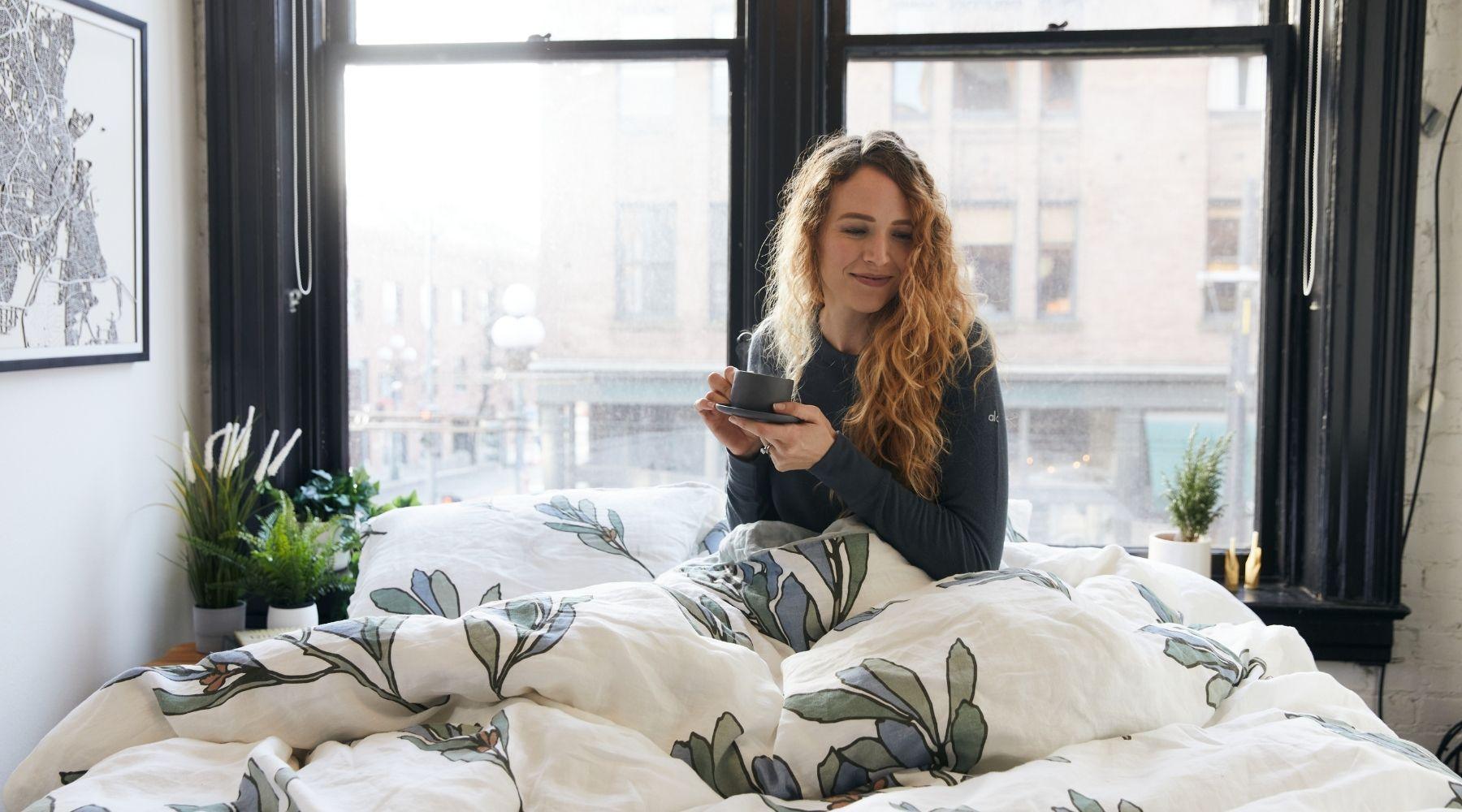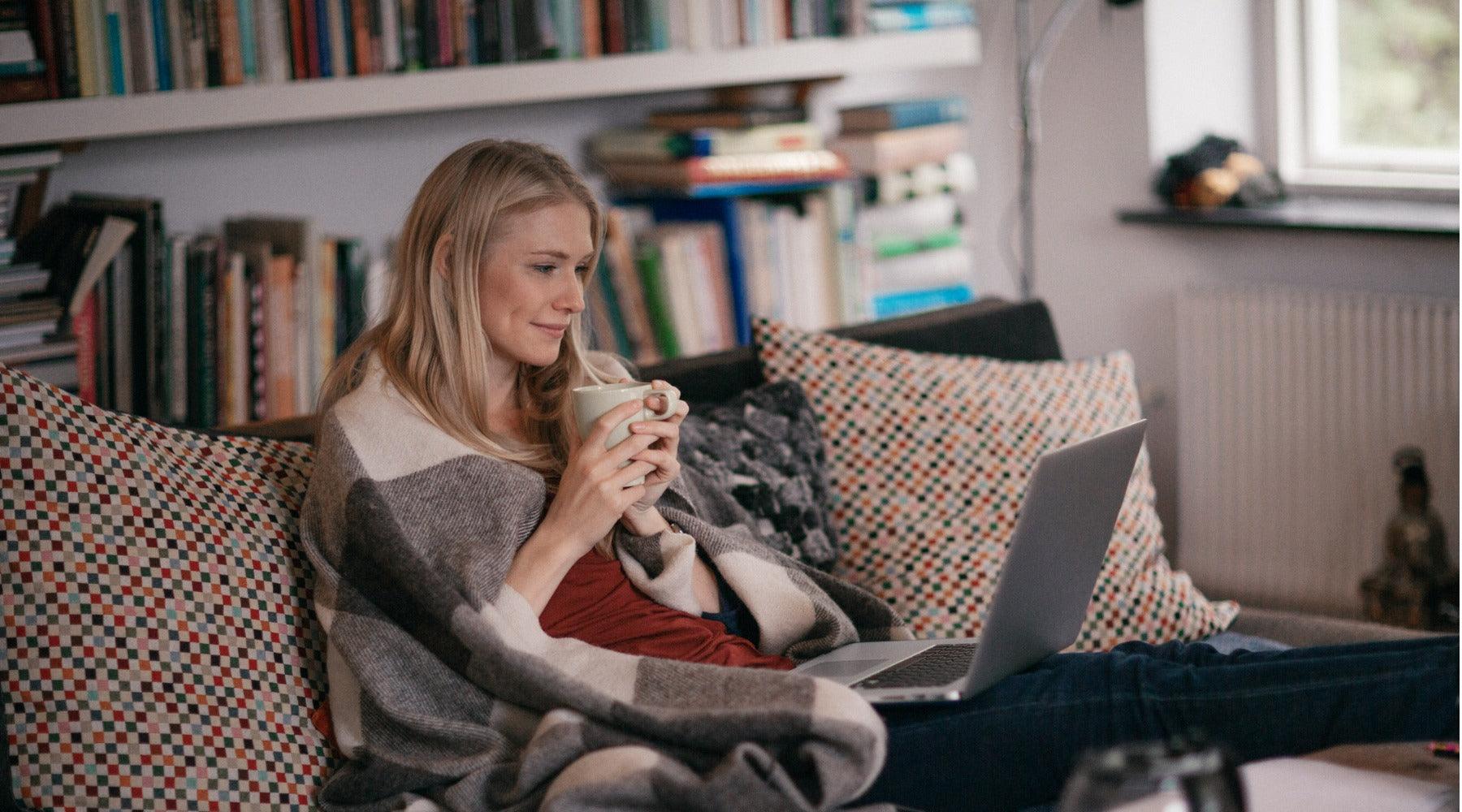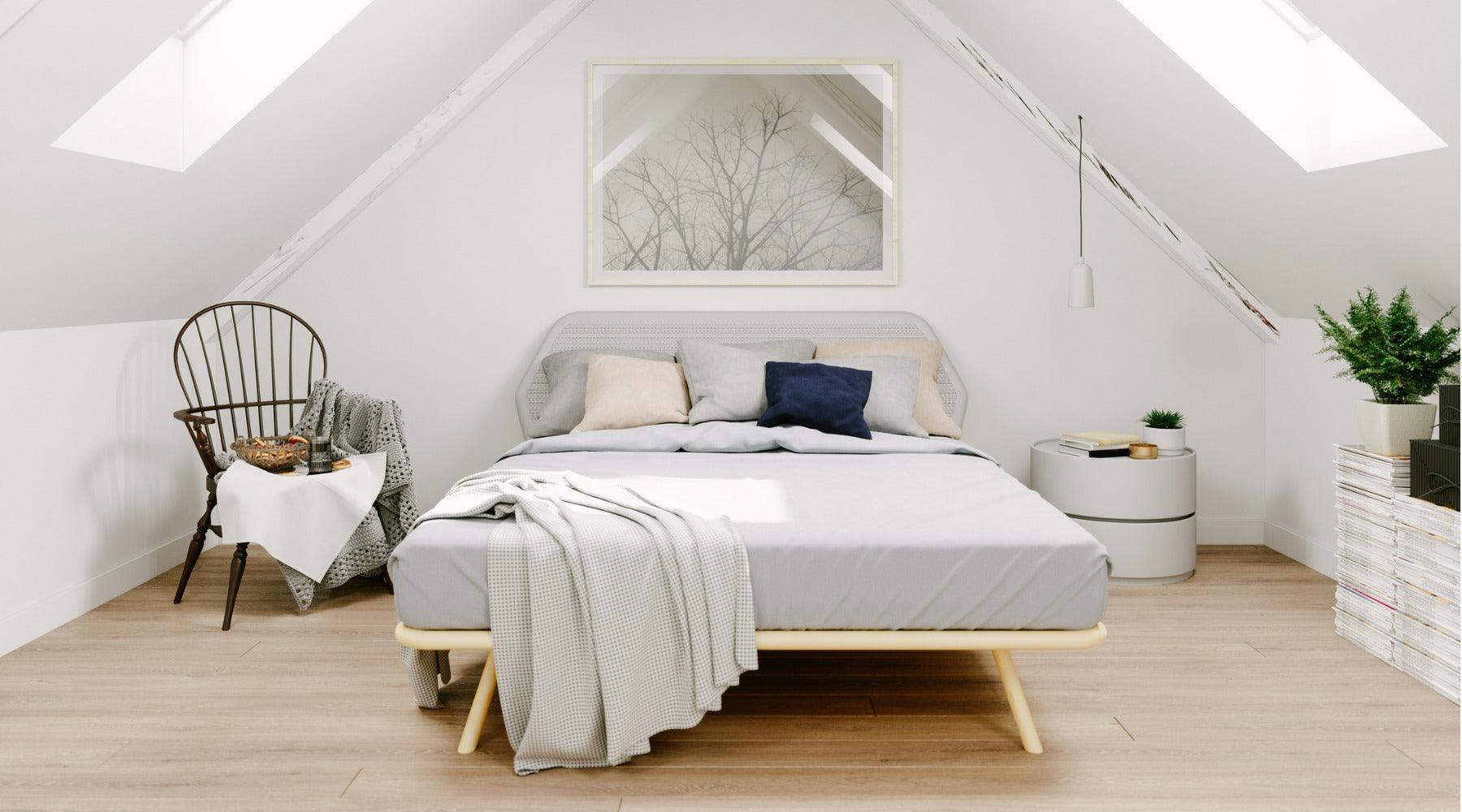
What Is European Bedding?
European bedding has its own distinct look and feel. Find out what distinguishes European bedding from bedding found elsewhere in the world, and how its simple style could work in your bedroom.
Europeans Drop the Top Sheet
Europeans sleep under a duvet with a duvet cover on it—that’s it. You’ll never see a top sheet on a European bed, except perhaps in international chain hotels where, bizarrely, you’ll find it paired with a duvet and a duvet cover.
Top sheets are unnecessary, uncomfortable, and messy, if you ask Europeans. You slide into them at night, a too-tight straitjacket that puts pressure on your joints, potentially causing leg cramps—not our idea of a restful bedtime. During the night, it becomes untucked and tangled, causing top-sheet tug-of-war between you and your partner. By the end of the night, it’s in a crumpled heap at the bottom of the bed, exposing you to a comforter last washed three presidents ago.
Comforters are just as heinous to Europeans—they’re bulky and difficult to wash and dry, so many people simply don’t bother. The patterned exterior hides the visual appearance of dirt but it’s still there—and no pattern will hide that smell! Even if you do clean your comforter, the fill decreases with every wash, making it flatter and less insulating each time.
One redeeming feature of a comforter however is that it can be used with a duvet cover. But then, why not just get a duvet in the first place? Duvets have more fill than comforters, so are usually warmer. Using a duvet cover means that your duvet stays clean both above and below, no matter how much you move around. And switching around your duvet covers means that you can change the design of your bedding with the seasons, so you’ll never get bored. With our Nordic-style duvet covers, for instance, you can cover your bed with the delicate chervil flowers of Kørvel in spring, the sky-blue flax flowers of Hørblomst in summer, and the red leaves of Løvfald in fall.
(Some) Europeans Sleep with Two Duvets
While this isn’t the case across the whole continent, some European couples—particularly in Central Europe, Germany and Scandinavia—sleep with two twin duvets instead of one large one. Indeed, in Denmark it’s near impossible to find a double duvet in the store!
According to British sleep expert Dr. Neil Stanley, sleeping with two separate duvets is better for sleep. Using separate duvets prevents a midnight blanket battle with your partner and allows you to select duvets of different thicknesses to suit your preferred temperature. That said, separate duvets can feel unromantic if you’re not used to it. It all depends on your relationship and how much you feel sleep to be an issue—if you and your partner are grumpy in the morning from waking up in a tangled duvet, it may be worth making the switch.

Aesthetics are also a consideration—a single large duvet might look more pleasing to the eye than two separate duvets. If this is a concern, you can drape a quilt over the duvets so that your bed looks nicely made up during the day.
With the separate duvet approach, you can even have individual duvet covers. At The Modern Dane, we sell twin covers over our entire range of European duvet covers, so whether you and your partner are into prints or solid colors, there’s a duvet cover for you.
Europeans (Generally) Have Smaller Beds
For all our joking around about top sheets and comforters, there’s one thing Americans definitely get right: bed sizes. European beds are not only smaller, but we tend to cram more people into them: a European “double” is roughly equivalent to a “full” in the US, even though it’s near impossible for two people to get a good night’s rest in such a small bed. Come to think of it, that may be one of the reasons why we sleep with two duvets!
At The Modern Dane, our Scandinavian-design bedding comes in standard American sizes—but if you’re buying for a non-standard-sized or European duvet, our handy size chart will help you find the best fit.
The Benefits of European Linen
It’s impossible to talk European bedding without mentioning European Linen, a carbon-negative textile created from flax grown in France, Belgium, and the Netherlands. Due to this region’s unique climate, the flax here is grown organically—while flax can be grown in other parts of the world, it’s difficult to cultivate without the use of artificial fertilizers and pesticides. Our organic linen duvet covers are GOTS and OEKO-TEX certified, so you can sleep well knowing your bedding has been made safely and ethically.
Do you still sleep with a top sheet? Would you consider switching to two duvets? Let us know your thoughts on European bedding on Instagram, Pinterest, Facebook, or Twitter!







Leave a comment
This site is protected by hCaptcha and the hCaptcha Privacy Policy and Terms of Service apply.